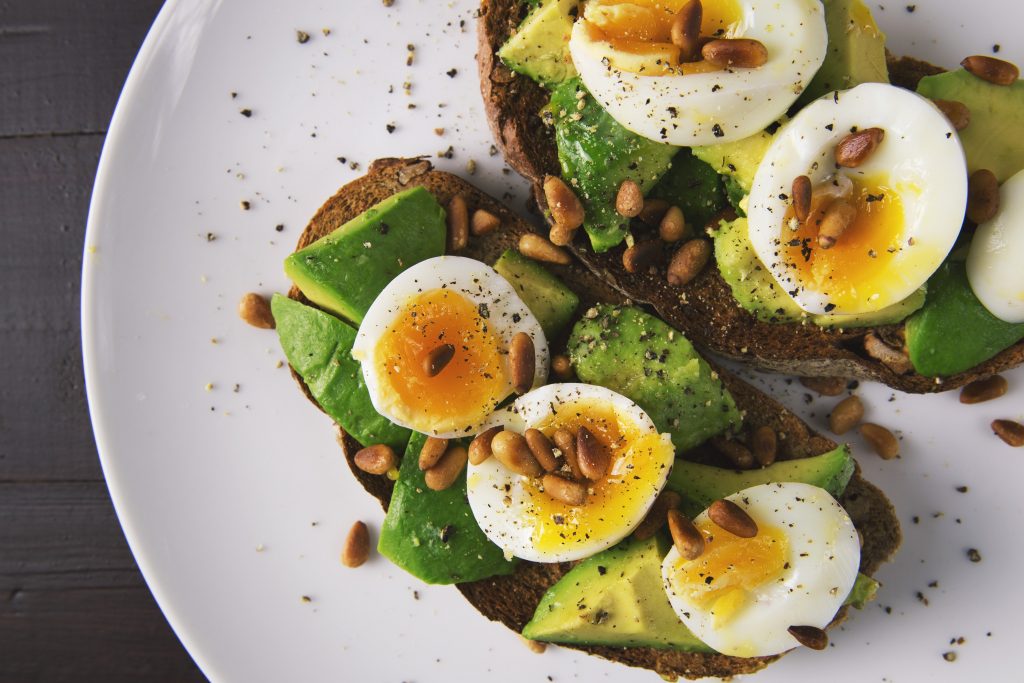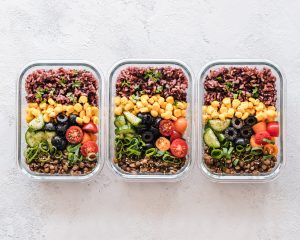
Ketogenic dieting isn’t the newest dieting trend, but it has stuck around longer than most. Why? Because it works! Simply put, the keto diet is low in carbs, high in fat, and moderate in protein to put your body through a state known as “ketosis”. Studies have proven that ketosis a healthy way to lose weight and regain control of your health, in an all-natural way!
What Is Ketosis?
The big transformation that comes with this low-carb, high-fat diet will be in how your body makes and uses energy.
Typically, carbohydrates feed your brain and bodily functions when they are converted to glucose. When you restrict carbs – meaning no sugars, grains, starches, beans, and many more options! – your liver will metabolize fat instead, both from your diet and on your body, and change it into fatty acids, which then become little compounds known as ketones.
Now, the brain uses up to 20% of your body’s energy, so it needs food of its own to properly function. These ketones will

replace glucose in feeding your brain, letting it do all the work you need it to do. The body, meanwhile, will become much more efficient at burning fat for energy, making keto an effective way to lose weight.
When you’re on a keto diet, you’ll have to adjust not just your food intake, but your lifestyle, too. You can’t exercise as strenuously when you’re in ketosis, because your body won’t have all the energy stores it needs to safely get you to the other side of a workout. You’ll need to drink more water, but your thirst levels will tell you that directly. You might even go through something called “keto flu”, where you suffer from low energy, sleep disorders, an increased appetite, and digestive distress, even going so far as nausea. This will pass, but you need to be prepared for it!
The Different Levels of Keto Dieting
Not everyone will go through keto flu, or experience the transition into ketosis in the same way. This is because not all keto diets are the same, either! Depending on your activity level and what you’re trying to achieve, you can adjust the levels of fats, proteins, and carbs in your diet:
- Typically, you want low-carb, moderate protein, high-fat. This will be 75% fat, 20% protein, and 5% carbs.
- If that’s too much fat for your liking, you can adjust the protein to make your keto diet a bit more palatable. This can be roughly 60% fat, 35% protein, and 5% carbs.
- If you’re an active person, keto might be hard for you to take on full-stop. The targeted ketogenic diet lets you ingest carbs around regular exercise, feeding your muscles with the quick-energy glucose they’ll need.
- If you’re struggling with keto flu and other side effects, you can cycle in more carb-heavy meals. Try eating a keto-friendly diet during the week, and consume higher amounts of carbs on weekends.
Foods For The Typical Keto Diet
Much of what people know about keto is what you can’t eat: sugar, grains, starches, and tubers like potatoes and root vegetables, juices, beans and legumes, most fruit, and, yes, most alcohol. Anything that is high in carbs should stay out of your grocery basket! But what about the things you can eat?
Don’t worry: just because you’re eliminating a lot doesn’t mean you’ll starve. In fact, because the foods you’ll eat will be higher in fat and protein, you’ll feel fuller longer!
- Meat and fatty fish will be your best friends. Bacon, red meat like steak, ham, and poultry are great, and salmon, tuna, and trout will give your diet a healthy dose of omega-3s.
- Eggs, preferably free-run or pasture for more omega-3.
- Butter and full-fat cream. You’ll have to avoid milk, though!
- Unprocessed cheeses like cheddar, mozzarella, goat cheese, and blue cheese
- Avocadoes – a great excuse for more guacamole!
- Vegetables that are low in carbs, like onion, pepper, tomato, and most leafy greens.
- Nuts and seeds like walnuts, almonds, pumpkin seeds, chia seeds, flax, etc.
- Small amounts of berries
What Can Keto Do For Your Body?
The ketogenic diet was initially developed to help with epilepsy, but its benefits have been shown to go beyond managing

seizures. Keto has been effective at fighting diabetes, and might even have positive benefits for warding off heart disease, cancer, and neurodegenerative diseases like Alzheimer’s.
While research is ongoing with those results, the biggest benefit for the average person is weight loss. Even if you’re only doing keto as a short-term plan, it’s a great way to shed pounds. When your body enters ketosis, it starts to use your fat stores as energy, melting them away. You don’t even have to track calories or closely watching your food intake – you’ll know exactly what you can and can’t eat.